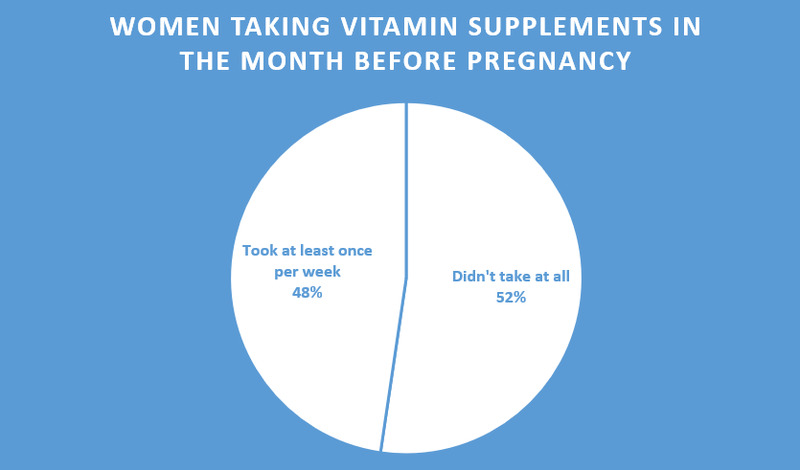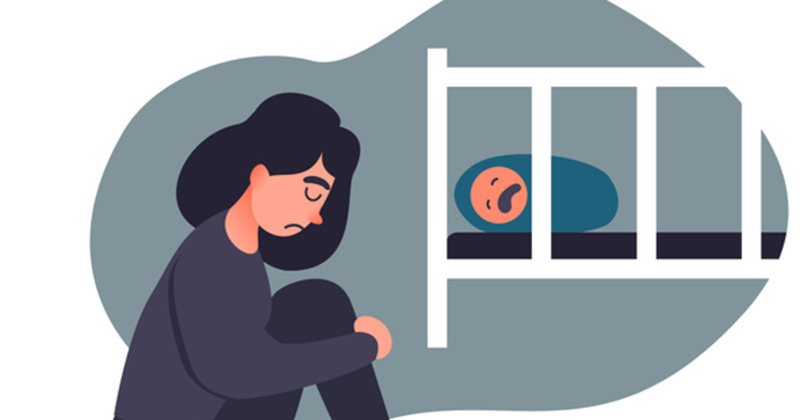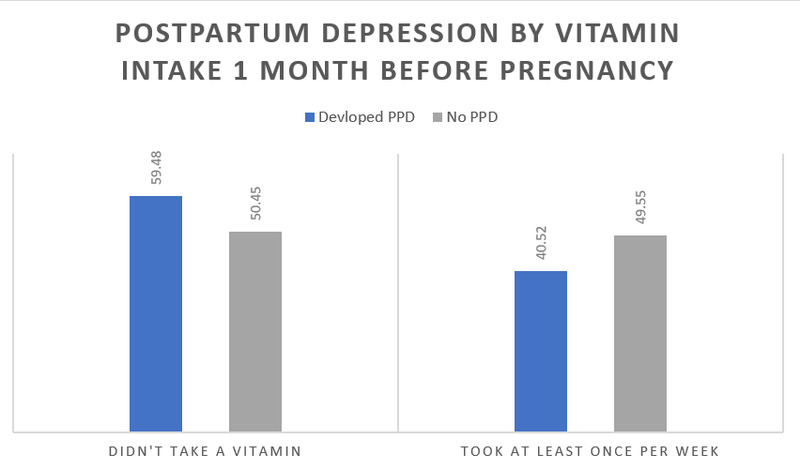Results and Conclusion
Results
Vitamin Supplementation
Shown in figure 2, 48% of women took a vitamin supplement at least once per week in the month before pregnancy. Of the 48% who took a supplement, a majority reported taking a supplement everyday while fewer reported only taking it 1-3 times per week and 4-6 times per week.
Postpartum Depression
Of the respondents to the 2016-2018 PRAMS survey, 1 in 7 (14%) women reported PPD. Whereas the CDC states that 1 in 8 women report symptoms of PPD[1]. Many women go undiagnosed with depression which can lead to further harm to both mother and baby.
Vitamin Supplementation and Postpartum Depression
Women who took a vitamin supplement were less likely to develop PPD than those who did not take a vitamin supplement (crude OR 0.69; 95%CI 0.65,0.73). After adjusting for confounding variables, vitamin supplementation remained protective against PPD (adjusted OR 0.91; 95%CI 0.85,0.97). .
However, after including pregnancy intention and previous history of depression, the significance of vitamin supplementation's association with PPD attenuated and were only marginally significant (adjusted OR 0.95; 95%CI 0.88,1.02).
Figure 3 shows the distribution of PPD status and vitamin supplementation. Women who reported taking a supplement in the month before pregnancy had lower rates of postpartum depression than those who did not take a supplement.
Conclusion and Implications
Vitamin supplementation has an inverse relationship with postpartum depression. Taking a vitamin supplement at least once per week in the month before pregnancy shows a protective effect on the development of PPD even when adjusting for certain variables. However, once pregnancy intention and history of depression were included, the level of protection from vitamin supplementation was reduced. These two factors may have a stronger impact on the development of PPD, but vitamin supplementation in the month before pregnancy shows promising results and requires further investigation.
Therefore, dietitians should include education on PPD in preconception and prenatal counseling sessions when discussing the benefits of an overall healthy diet and the incorporation of vitamin supplementation.




